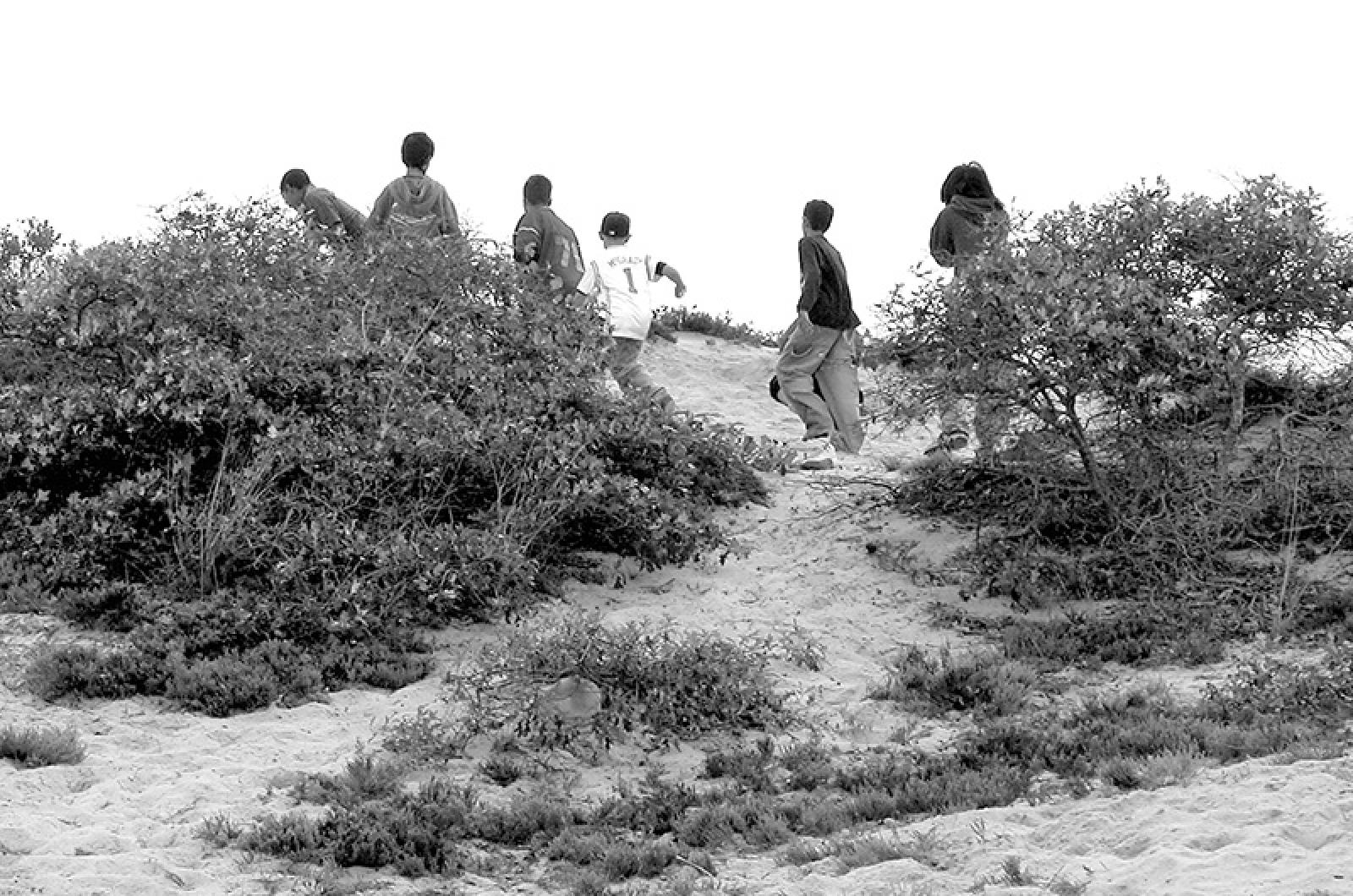From the Oct. 12, 1934 edition of the Vineyard Gazette:
Gay Head residents moved out of their homes on Tuesday and traveled to the wild cranberry bogs where the celebrated the peculiar holiday of the town, Cranberry Day, in all the joyousness that has marked this annual festival since the first Indians discovered the wild berries. As usual, the school was closed, and all able-bodied persons went to the bogs, riding in cars, ox-carts, and horse-drawn equipages, although these last were scarce, only two horses being owned in the town.
Men, women and children descended upon the bogs and picked the luscious, black and ruddy fruit, gathering it into sacks and baskets. The crop was light this year, the hot, dry summer having ruined large sections of the bogs, where the flooding is light, but on those portions where the dampness lingered, the berries were of unusual excellence. An estimate of fifty bushels were picked on Tuesday, and while this is really the cream of the crop, there will be picking there for weeks to come for all those who gather the berries for their own use.
There are few more peculiar circumstances or customs than Gay Head Cranberry Day and the situation which inspires it. The cultivated cranberry requires the expenditure of a tremendous amount of labor and care if it is to flourish, and even then an inferior crop may be expected at times. The bogs must be flooded to prevent freezing and otherwise treated to prevent other damage, while plants must be thinned, or areas replanted at certain intervals, albeit they may be lengthy ones.
But here at Gay Head, the bogs are wild, “planted by the Manitou.” For centuries they have existed, how many, only the Great Spirit knows, and during those centuries not an hour’s labor has ever been expended upon the bogs save that of harvesting the fruit. The winter rains flood the bogs, protecting the plants. The winds of other seasons blow the fine sand from beach dunes, to sand the bogs to proper depth. And seldom does anything occur to interfere with the harvest or growth of the crop. But last year, the early rains, being unusually heavy, flooded certain portions to such a depth that the berries could not be gathered. Such occurrences are rare, however, and all residents of Gay Head look forward with implicit faith to the harvesting of the crop planted by the Manitou.
Inbreeding of plants, so fatal to many varieties of cultivated stock, and the absolute lack of labor and care, have no effect upon the size or quality of the berries, which are usually somewhat larger than the finest of cultivated cranberries and better flavored. Older Indians said that the Great Spirit looked after this crop, and there is no other explanation for the phenomenon today. There is not even a fence around the areas where the bogs lay, nothing to prevent the cattle from grazing and roaming across them. Yet they never do. The soil is of a variety that usually tempts cattle, soft, wet, and with little or no mud. There are growths of tender wild grasses, flavored with salt from the ocean, to be found around the edges of some of the bogs, but they are not eaten. Even the wild rabbits, which have been known to ruin a cultivated crop of cranberries, and the field mice, who are their allies, in splitting the berries to obtain the seeds, seldom destroy more than an occasional berry, as far as can be detected.
This land, as well as large areas of the surrounding country, is held in common, and every person who is a native of Gay Head, or who is an heir to a Gay Head Indian, is credited with a share in the bogs and allowed the privilege of picking cranberries there. Such is the law which has descended from the ancient tribes unto the present day. A cranberry agent is solemnly elected and sworn in at each annual town election, and it is his duty to see that the bogs are not disturbed or visited by pickers before the official day arrives. This day varies but little from the 10th of October, although weather conditions are taken into consideration, and the agent is authorized to set the date for opening the bogs at his own discretion.
Ancient usages and customs govern all things pertaining to the harvesting of the wild cranberries, and the people who flock to gather them rarely leave the bogs from morning until night on the opening day. Lunch time sees them literally encamped along the edges of the bogs, eating the food which they have brought with them, as they sit by smoking campfires, their oxen grazing nearby.
Tribal law of the ancients, regarding the cranberry crop as the gift of the Great Spirit, also carried the stipulation that no man could be excluded from enjoying some small portion of this gift. And so today, although Gay Head has long since been an incorporated town, the old law prevails, and when the third day has passed after the opening of the bogs, the public is allowed to go and pick as they will.
Compiled by Hilary Wallcox library@mvgazette.com




Comments
Comment policy »